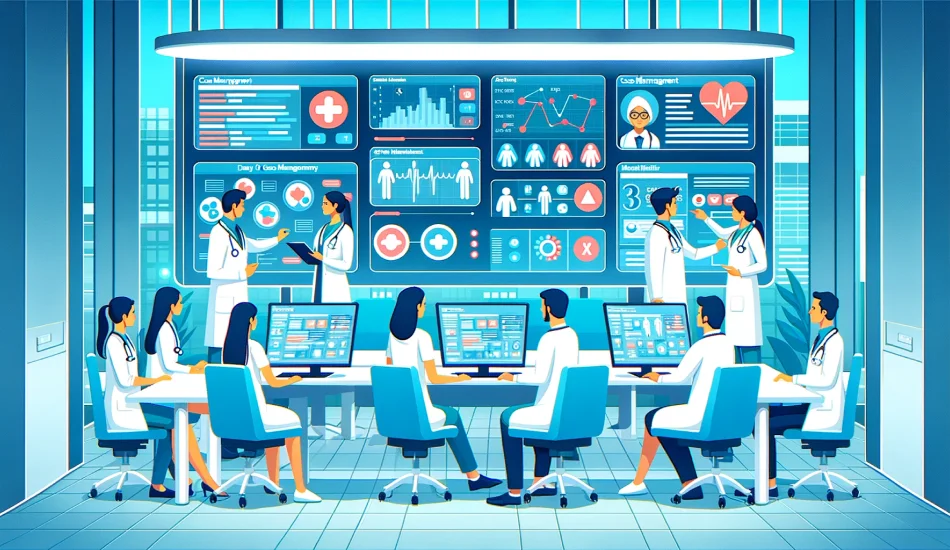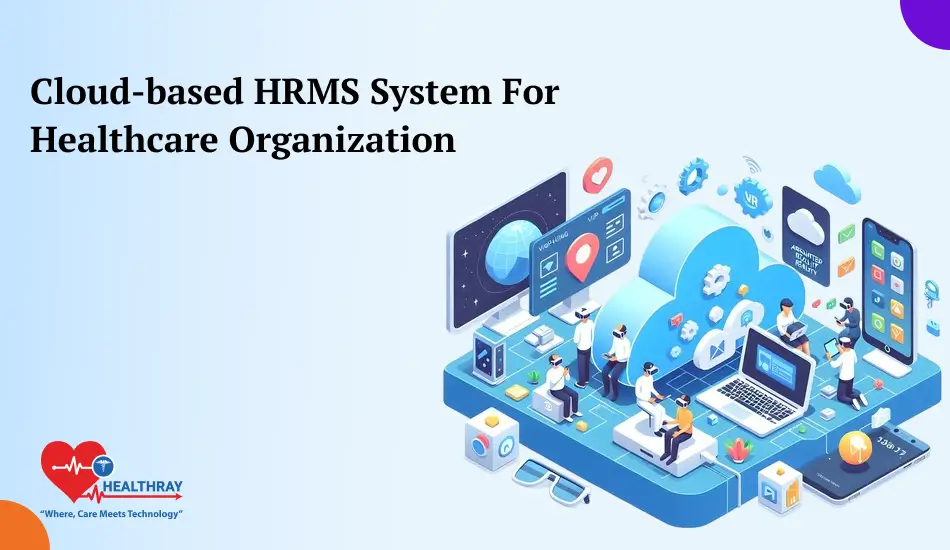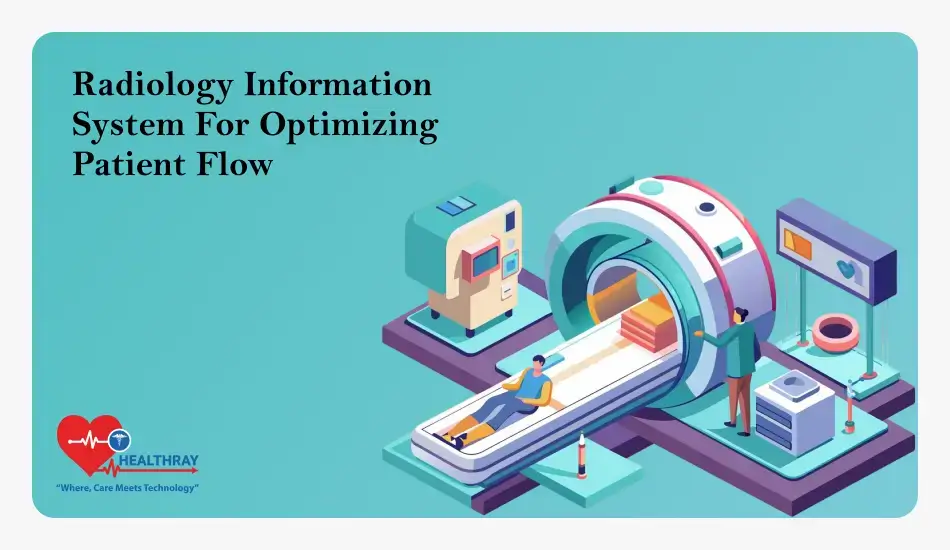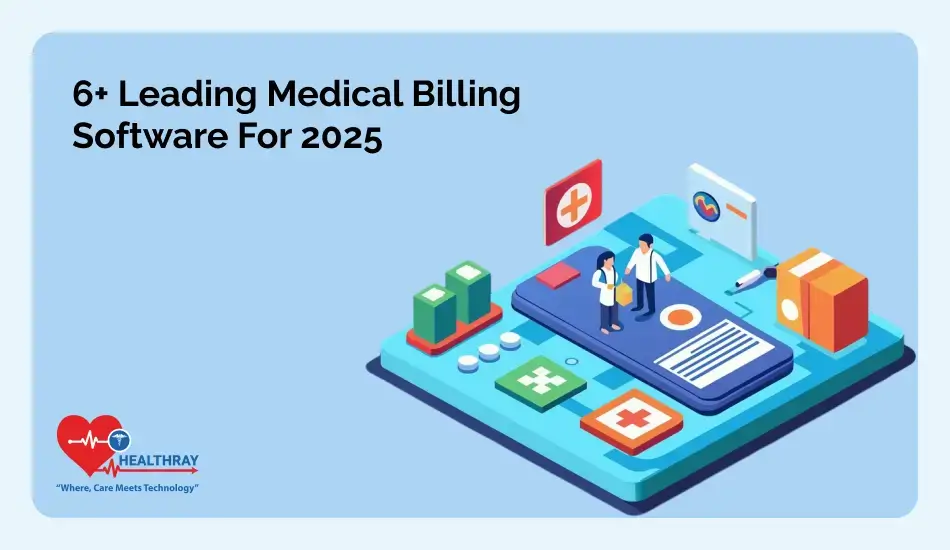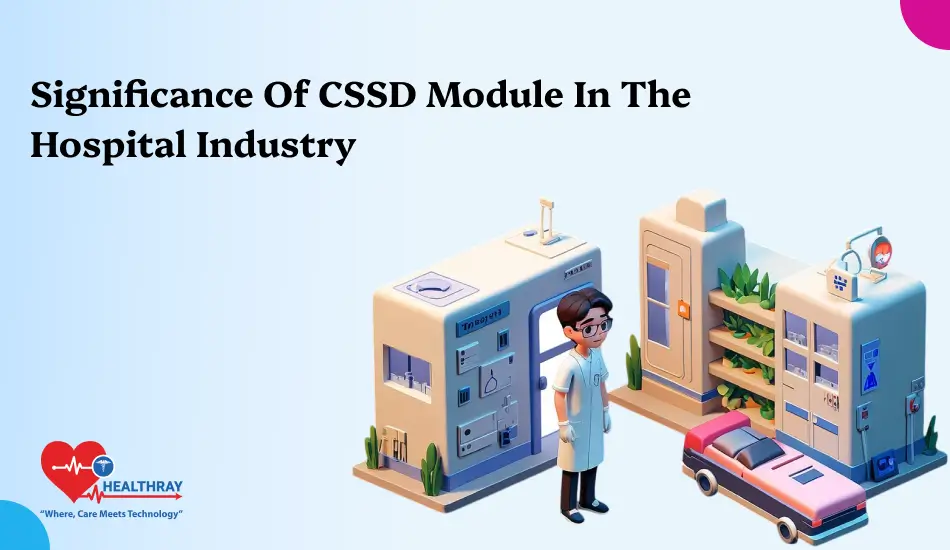Quick Summary : Before utilising hospital case management software, it’s crucial to consider crucial factors including scalability, cost-effectiveness, user-friendliness, integration capabilities, and data security. Hence this guarantees that the software will meet the goals and requirements of your healthcare organisation. You can decide what’s best for your hospital by using our information on the adoption of case management software.
Introduction
Protecting the legal status of your healthcare organisation requires selecting the appropriate hospital case management software. It requires making thoughtful decisions on efficiency and security threats. While giving patients the best care possible is a top priority for healthcare professionals, they also have to handle a number of other tasks, such as scheduling, documentation, billing, and other planned or unplanned activities.
The effectiveness of these treatments has a significantly influences thequality of care that patients get. Hence utilising a practice management system to streamline these procedures can help your healthcare firm function more efficiently, generate invoices, and monitor and record work more successfully. In light of your healthcare goals and outcomes, this article will highlight critical considerations to make when choosing the best hospital case management software for your company. Also it will help you choose one of the top hospital management software development services.
However examine Our Guide to Help Your Healthcare Organisation Make Well-Informed Decisions.
What Is Hospital Case Management Software?
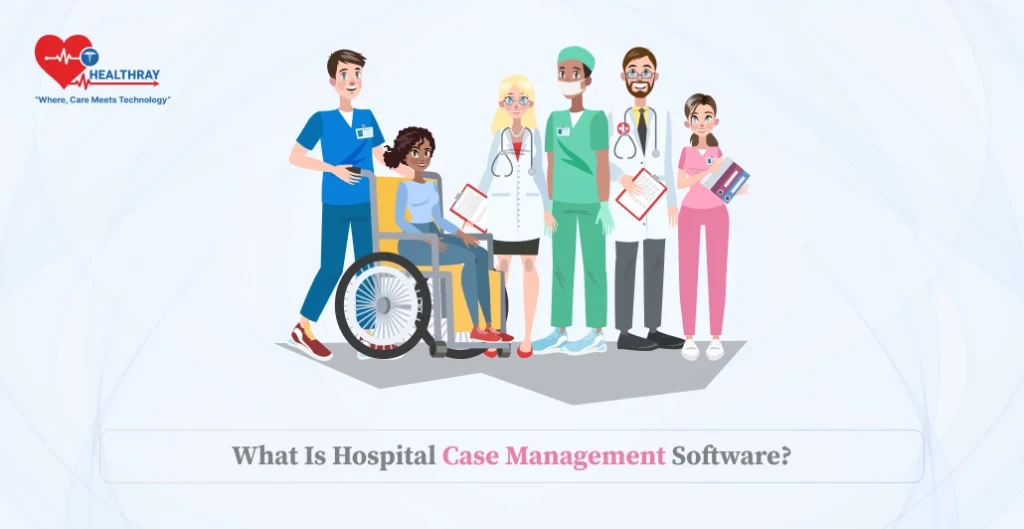
Hospital case management software effectively manages extensive patient data for healthcare organisations by providing a centralised platform. Contact information, case notes, appointment schedules, health history, and correspondence with clients are all included in this. The programme carries out three main tasks:
Intake: Quick data input is facilitated by employing digital forms which require no manual entry and save on time.
Case Management: It effectively manages processes while attending to specific customer needs. Hence these functions allow for client note taking, message response, email organization and appointment scheduling.
Reporting and Assessment: Tough reporting tools facilitate monitoring, trend analysis and data assessment that ensures customers’ measurable and qualifying success.
What Advantages Do Patient Case Management Software Offer?
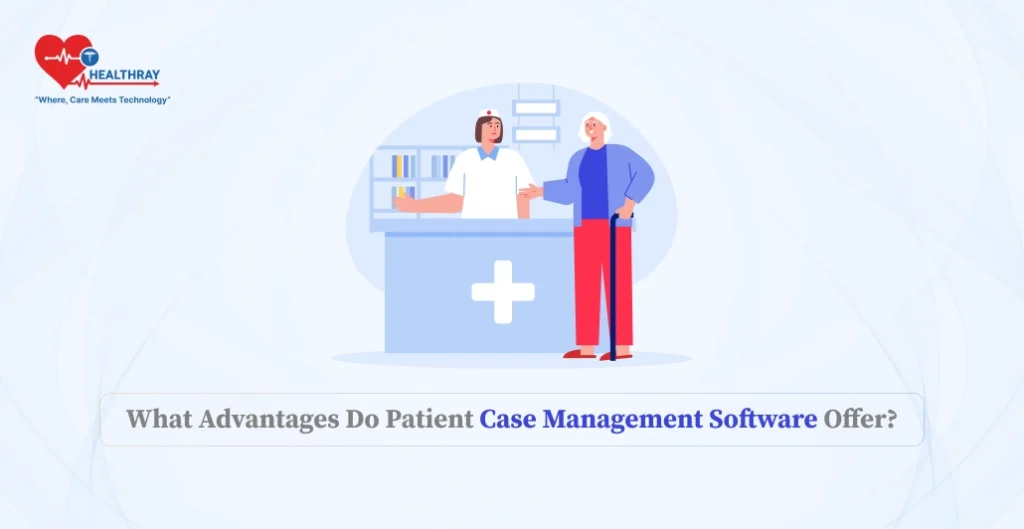
For health care organizations, hospital case management software might be equated with super powers. Think of it as your reliable partner who will share the burden with medical personnel and ensure that patients receive the best treatment possible.
- Imagine patient-focused communication as a casual conversation between patients and healthcare professionals. This programme ensures that medical professionals have all the information necessary to deliver excellent treatment.
- Quick Approvals: Have you ever had to wait on a crucial matter? Not with this programme available! It expedites the operation, guaranteeing prompt approvals when required, particularly for significant processes requiring several approvals.
- Effective Escalations: Occasionally, a little prodding is needed. The programme assists patients in finding a new point person or receiving prompt attention from superiors on their needs.
- Collaboration Across Departments: Imagine it as an online conference room where several departments exchange updates regarding a patient’s medical progress. Everyone is kept informed, which facilitates easy cooperation.
- Smoother Operations: Picture all the mundane chores being miraculously completed. This programme accomplishes just that, giving medical personnel more time to concentrate on what they do best—taking care of patients. It’s similar to hiring a personal assistant to handle the paperwork.
In summary, hospital case management software is the unsung hero of healthcare, facilitating cooperation, streamlining procedures, enhancing communication, and enhancing the patient experience overall. You can also take advantage of comprehensive hospital visitor management software for better hospital workflow.
Key considerations to ponder before acquiring hospital case management software
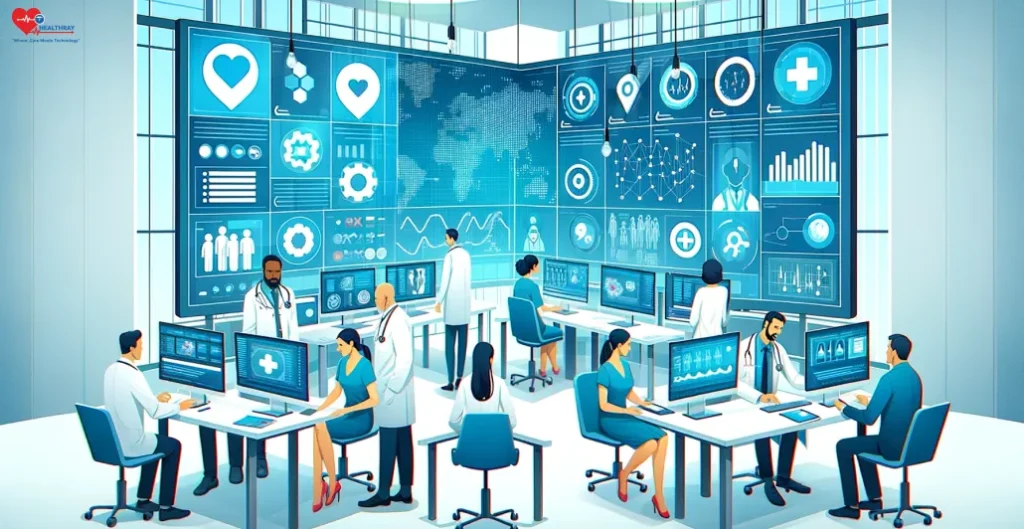
Selecting the Best Case Management Software: Cloud-Based or Server-Based
The debate between server-based and cloud-based solutions is a major aspect of healthcare administration today. It is now the age of cloud based solutions with artificial intelligence, announcing the end of traditional on-premise software. Below are some considerations to make while choosing hospitals’ case management software:
- Cloud-Based Benefit:
Secure Access: At any time and from anywhere, take advantage of secure access to company data.
Auto Updates: Farewell to manual upgrades that were time consuming and hello to cloud based solution that updates your system automatically without you having to do anything ,thus saving your money and time.
Costs: Being hosted on remote servers, cloud-based software can help you evade charges related to hardware maintenance or upgrading.
Given this fact: Selecting actual cloud based solutions ensures uninterrupted reach required in such a hectic healthcare environment.
- Usability:
Give priority to a user interface that is simple to use and intuitive so that your workers can easily embrace it.
Before committing, select software that provides free trials or demonstrations so you may experience the usefulness up close.
Taking into account: Increase in staff adoption is through case management systems that are easy to use and need little setup.
- Integration of Software:
Ensure that all existing software systems such as; hospital staff management software is smooth to integrate.
Benefit from the ease of attaching email files to emails by dragging and dropping them, and keeping files in one place.
Taking into account: Integration with accounting software like Xero simplifies case management documentation, promoting uniform data.
- Personalisation Level:
Your Allied Health organization is unique so customization is important for it.
Look out for specifically designed administrative documents and reports that address patient identification, diagnosis, and treatment monitoring issues comprehensively.
Take into account: Choose a case management program that permits accurate tags for systematic filing of documents in question.
- Making Appointments:
This will help manage appointment schedules effectively reducing missed appointments.
In addition, use automated reminders across multiple channels to enhance patient attendance.
Taking into account: Adding the ability to plan appointments can assist improve workflow and lower the number of cancelled appointments.
- Convenience and Accessibility:
Make use of cloud-based features to be accessible from any device that can access the internet.
Take advantage of remote access to reports, appointments, billing invoices, and patient records.
Taking into account: Cloud-based solutions are flexible and accessible, which is especially important in times of health emergency such as the COVID-19 pandemic.
- Reporting and Compliance:
Check that the papers are in place and conform to state and federal rules.
Ensure you meet reporting requirements to make compliance easy and streamline case management.
Taking into account: The combination of case management functions with reporting & compliance makes it more efficient and straight forward.
- Privacy and Security:
Emphasize cloud-based platforms for secure data backup, firewall protection, as well as encryption.
Strongly focus on continual monitoring in order to detect and mitigate cyber risks proactively.
Considering: To protect sensitive patient data from cyber risks and unauthorised access, strong security measures are essential.
In conclusion, your organization’s demands should guide your decision when deciding between server-based and cloud-based case management software. Pay particular attention to aspects like security, personalisation, convenience of use, accessibility, and integration possibilities. Making an educated choice guarantees effective healthcare administration and improves patient
Check Out Healthray’s Hospital Case Management Software Development
Healthray’s cutting-edge software will revolutionise the way to handle hospital case management. Being a top provider of hospital management software development services, we are experts in streamlining administrative work, arranging medical records, and improving overall operational effectiveness.
Healthray provides a user-friendly platform that enables you and your care team to easily plan appointments, manage patient data, and guarantee compliance. Our software’s versatility is to accommodate the particular requirements of your medical facility, managing everything from scheduling appointments to invoicing and reporting. Our services also include comprehensive hospital workforce management software for managing staff.
With the hospital case management software from Healthray, take the first steps towards increased operational efficiency in the healthcare industry. Discover the secret to improving patient care and hospital performance. Give it a try right now to see the life-changing effects for yourself.
Conclusion
The use of automated hospital case management software has revolutionised the healthcare sector in recent years. This adaptable tool has a number of features that improve service delivery and expedite procedures, which raises overall operational efficiency in the insurance and healthcare industries.
To sum up, it is critical to choose hospital case management software carefully. Give utmost importanceto elements like adaptability, data security, user-friendliness, and integration possibilities. To make sure it is in line with the particular requirements and objectives of your institution, consider its scalability, cost-effectiveness, and compliance aspects. Making an informed decision in these areas would not only improve patient care in a significant way but also expedite operations.
